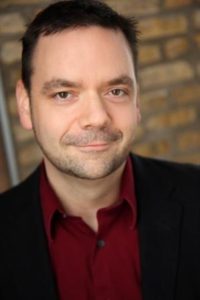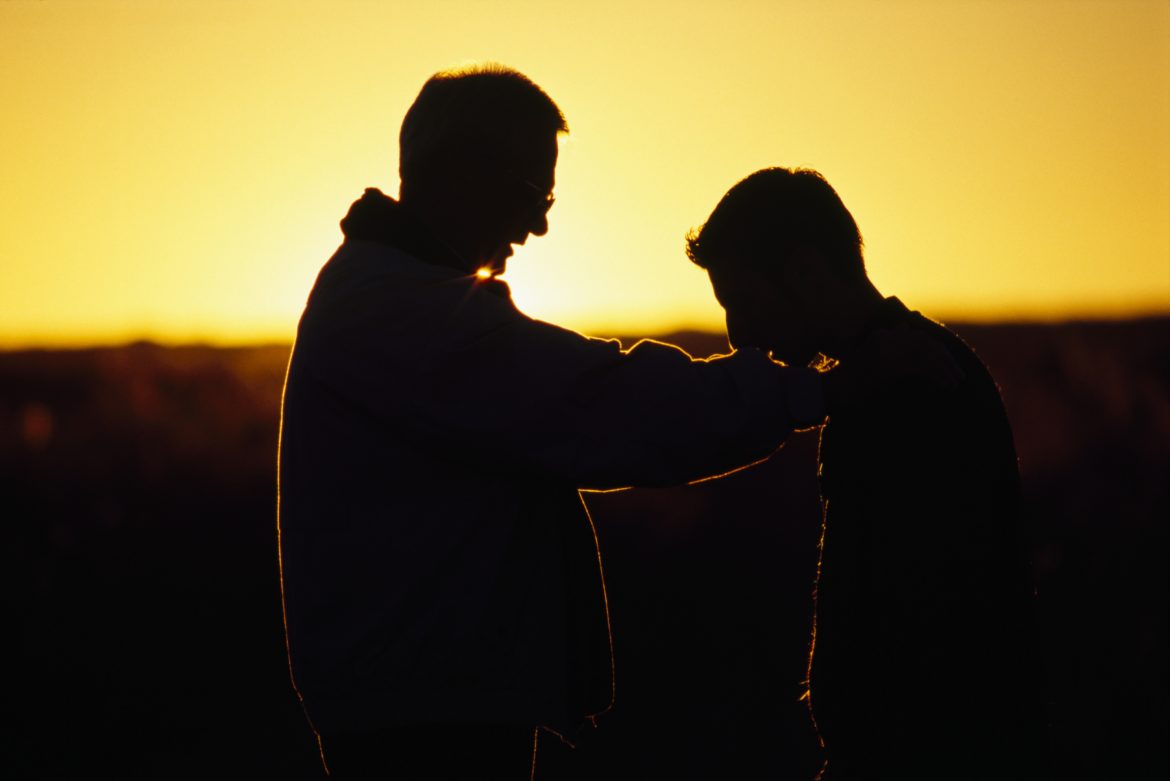Telling your story can be terrifying. It can also be a lifeline.
By Kevin Gladish
On May 26, 2015, thanks to a change in Ohio law, I received a copy of my original birth certificate in the mail. That day, I finally learned a truth that I had long suspected but denied my entire life — that I was adopted. I was 43 years old.
Six weeks later, I began writing and speaking publicly about it. And I haven’t really stopped.
I had no idea then how writing and storytelling would save me. In those first days, my words were raw and filled with both a newfound freedom and a newfound grief. Learning that I was, in fact, adopted, was like putting on prescription glasses for the first time after years of not even knowing I couldn’t see. But it also meant seeing how long I’d been lied to and what believing those lies had cost me.
I posted my blog to Facebook and waited. At first, my confessional ramble felt like a selfish act of rebellion. Until then, I’d only told a few people what I’d learned. I knew that the news would come as a shock to most — not so much that I was adopted, but that I had only just now found out.
It was embarrassing, like finally admitting that I’d been pretending to laugh along with a joke that I never got, a joke that was on me the whole time. And yet there was also a relief. Despite how I felt, I knew it was not my fault. I simply could not fathom that the father I loved and trusted my whole life, a man I still today sometimes miss terribly despite everything, could look me in the eye when we were both grown men and lie. But that’s what he did. Having seen one too many clues, I’d finally gotten the guts to ask him if I was adopted.
“No,” he said. “You’re not.”
I had a decision to make, and I did what I think a lot of people do when confronted with whether to believe someone they love. I chose to ignore the growing mountain of evidence: photos and timelines that made no sense, memory fragments, and my own reflection in the mirror. I chose to believe my father.
None of this changed what I’d always felt inside. I’d spent a lifetime averting my eyes and changing the subject whenever the conversation turned to family ancestry, a topic that inexplicably made me uneasy. I’d say I was mostly Slovak (I know now I’m mostly Irish) and taught myself to repeat lines like, “I take after Mom. My sister takes after Dad.” In truth, I looked like neither, and deep down I’d always felt like a fraud playing badly at a game of charades.
That first blog post was read by hundreds of people and passed on. I got calls asking if I was OK. People connected me with online support groups of other late-discovery adoptees, with whom I shared more. And for the first time, I felt a layer of loneliness I never even knew existed begin to fall away. I began to relate to people, for the first time, as me.
Of course this was also frightening. At times I was seized with sudden irrational panics squeezing my throat and chest. I imagined losing everyone, being rejected and abandoned for telling the truth. I was sure that somewhere a meeting would be called to decide that I had stepped out of line and needed to be punished. And though my father by this time was gone, and my mother was in the grip of severe dementia, I still believed there would be dire consequences for exposing the truth.
None of this happened, of course. It was all in my mind. But such is the power of deeply held shame.
Until I began telling my own story, I’d been a character in someone else’s made-up tale. It may have been a nice story, but it wasn’t mine. And it wasn’t true. And just as I had been putting my health at risk each time I walked into a doctor’s office and wrote down someone else’s family medical history instead of my own, I was making myself soul sick every time I repeated it. Now, I could finally start to get better.
It would be a while before I could begin to trust myself. My first instinct, to this day, is to assume that I am always wrong. “You need to listen to your gut,” I’ve been told, and it’s good advice. But what if you’d spent a lifetime convincing yourself that your gut was telling you lies? Journaling and meditation help, along with honest friends I trust. But I’ve got a ways to go.
Years later, I am still new at this. Every word I write and speak of my truth is a battle against self-doubt and uncertainty. But that’s precisely why I keep doing it, long after some would prefer I “get over it.” Again and again, I am saying: “This is me. This is true.” And every once in a while, someone will say, “Thank you. Your story helped me.” I hear not only from other late-discovery adoptees but also from those who are healing from their own family secrets and inherited shame. I listen, and our stories become a conversation, one that saves us both.
Of course there’s always a risk in telling a true story. Not everyone will want to hear it. But someone, somewhere, will need to hear it, just as badly as you need to tell it. I hope you will. I’m listening too.

Kevin Gladish is a late-discovery adoptee, writer, and storytelling performer living in Chicago. He started documenting his discovery and search for birth family soon after finding out he was adopted at the age of 43 and is working on a full-length solo performance piece that is yet unnamed. He’ll take suggestions. Check out his blog, A Story with No Beginning: A Late Discovery Adoption Journey.
Severance is not monetized—no subscriptions, no ads, no donations—therefore, all content is generously shared by the writers. If you have the resources and would like to help support the work, you can tip the writer.
On Venmo: @Kevin-Gladish





3 comments
Writing can be healing. We’re not alone. Thanks for sharing your story, Kevin.
Thanks so much for sharing your story. Our adoptee stories are hard for others to enter and understand. Your eloquence adds to the collective effort to explain the often dysfunctional adoption norms for adoptees. I feel privileged that you have let us in to your experience.
Thank you for sharing this.